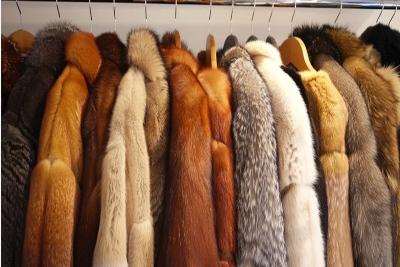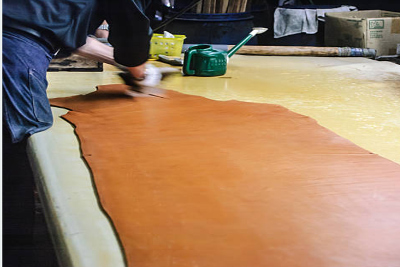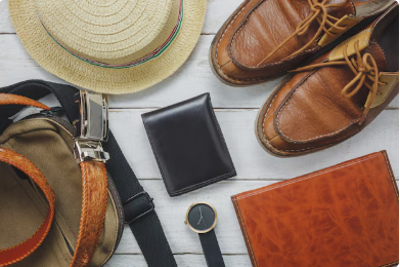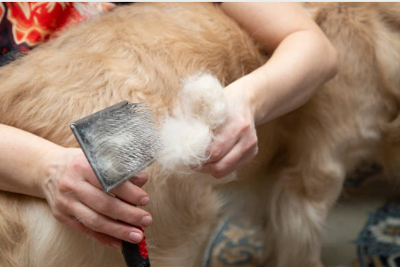
Halal Certification in Fashion: Assessing Leather and Fur Products
In the world of fashion, two materials have always been known for their timeless style, luxurious appeal, and durability. These two magnificent materials are leather and fur, but as the fashion industry advances in its style and design, Halal consumers look for ethical, sustainable, and Halal-compliant options, thus raising the demand for Halal-certified leather and fur products as the need for stylish and culturally compliant fashion is more pressing than ever. Let’s explore and breakdown what Halal certification entails for leather and fur. The ethical and practical concerns around animal-derived products, the origin and cultural significance of leather and fur, the challenges faced during this process, and the synthetic alternatives to fulfill the Halal consumer demand.
Leather & Fur; Origin, Fashion & Cultural Significance
Leather and fur have long been prized for their durability, warmth, and luxurious aesthetics. These two materials are also a symbol of status and style in the world, but if we go back in time and trace its origin, back then leather and fur were only used for surviving in harsh climates as they were used for warmth and protection from rugged environments. With the passage of time and research, different cultures came up with their own tanning techniques for leather and different methods for treating fur. Leather and fur have been more than just clothing materials; they hold important cultural and social significance too. Historically, kings, emperors, and nobility often wore fur-lined robes and leather accessories to signify their power and prestige. While, in the 20th century, leather became synonymous with rebellion and counterculture, all thanks to the biker and rock community’s iconic figures. Fur, on the other hand, has always remained a symbol of elegance and wealth, gracing the wardrobes of well-known celebrities and high societies, and leather is commonly used in items like jackets, handbags, shoes, and belts for its strength and versatility.

What Material Are Leather and Fur Made of?
For leather and fur, the material is mainly sourced from animals like cows, sheep, and goats, while crocodiles and snakes are also the main sources of leather products, but each animal varies in its texture, durability, and look. On the other hand, fur is sourced from animals like foxes, rabbits, minks, polar bears, and chinchillas that are chosen for their unique fur qualities, such as warmth and softness. Leather undergoes a tanning process to make it soft, supple, and durable for the long run, while fur requires no such process like tanning but is often
processed to just enhance its natural luster and texture.
Understanding Halal Fashion: Merging Style with Values
As Halal consumers become more conscious about their daily life product choices, Halal certification offers them peace of mind. The same is the case in Halal fashion, as it reflects a balance between style and Halal principles, focusing on materials and designs that align with their cultural norms. So that Halal consumers can too enjoy fashion that honors both their aesthetic appeal and values.
The Role of Halal Certification
Halal certification is a label that indicates a product meets Halal standards. For leather and fur products, this means that the sourcing, processing, and handling of these materials adhere to specific Halal guidelines. In recent years, Halal certification has expanded beyond food to include fashion, aligning with the values of a diverse and conscientious consumer base.

The Process of Halal Certification for Leather and Fur
The process of Halal certification for leather and fur involves rigorous inspections. Which includes:
- Animal Welfare: This ensures that animals are treated humanely throughout their lives, with ample amounts of space, nutrition, and care.
- Halal Slaughtering: Proper methods of Halal slaughter are followed, which outline Halal standards that minimize the animal’s suffering and full drainage of the animal’s blood to maintain purity.
- Traceability: Maintaining detailed records of the supply chain, making sure that all the materials used are Halal-compliant from start to finish of the product.
- Third Party: Engage with reputable certifying bodies to validate compliance with Halal standards, providing consumers with confidence in their purchases.
- Labeling and Consumer Assurance: Certified products receive a Halal label, assuring consumers with confidence that the leather or fur aligns with their ethical and religious values.
Challenges and Solutions in Halal Certification for Leather and Fur
Halal certification of any product comes with its own set of challenges; for leather and fur products, it’s no escape either, but by addressing these hurdles effectively, the industry can unlock new opportunities while maintaining consumer trust and ethical integrity.
Limited Awareness Among Halal Product Producers
- Issue: Many Halal product producers are unaware of the requirements required for Halal certification in clothing or fashion.
- Solution: Producers can conduct awareness campaigns and workshops for manufacturers, educating them on Halal principles and certification requirements.
Absence of Halal-Friendly Tanning Process
- Issue: Traditional tanning methods for leather often use non-Halal chemicals or animal byproducts.
- Solution: Developing and promotion of Halal-compliant tanning alternatives, such as plan-based or synthetic materials, that ensure adherence to both Halal and sustainable practices.
High Certification Costs for Small or New Businesses
- Issue: Smaller or new brands may struggle with the financial burden of obtaining a good, reputable Halal certification.
- Solution: Introduce subsidies or tiered pricing systems for certifications and encourage partnerships with Halal certification bodies to make the process more accessible for smaller businesses.
Halal Fashion Landscape and Collaborating with Ethical Suppliers
Brands that are looking to incorporate Halal-certified leather and fur products into their collections. Understanding the certification process is important for them. It will help them to have a better understanding of certification bodies. Certifying bodies ensure that the products meet Halal standards, which fosters consumer trust. Brands can further enhance their commitment to Halal fashion by collaborating with suppliers who share similar values. Partnerships like this not only strengthen the brand’s moral core, but they also provide doors for production and innovations in designs. By prioritizing ethical sourcing, brands can lead the way in redefining the fashion narrative.
Synthetic Alternatives: Fulfilling Halal Consumer Demand
Given the complexities around Halal certification for natural leather and fur, alternatives are gaining popularity among Halal consumers to fulfill the demand of Halal consumers, such as faux leather and fur; they are often considered Halal-friendly after the Halal certification process they go through, and they do not involve animal products, thus eliminating any concerns. Nevertheless, innovations in the textile engineering field have led to high-quality synthetic leathers that very much mimic the look and feel of natural leather, which is a viable option for consumers seeking Halal and vegan fashion.
Halal certification in leather and fur products is more than just a label; it represents a movement and commitment towards compassion, responsibility, and inclusivity in fashion for Halal consumers. Embracing this trend not only benefits consumers but also paves the way for an ethical and sustainable fashion industry. Let’s look forward to a future where style and ethics coexist harmoniously and fashion is truly for everyone around the world!
Islamic Services of America (ISA) is a leading USA based Halal certification and auditing organization serving companies, the community, and the Halal certification industry for nearly 50 years. Contact ISA at isa@isahalal.com or send your initial inquiry to Halal certify your products at https://www.isahalal.com/contact or visit the ISA website for more information at https://www.isahalal.com/

